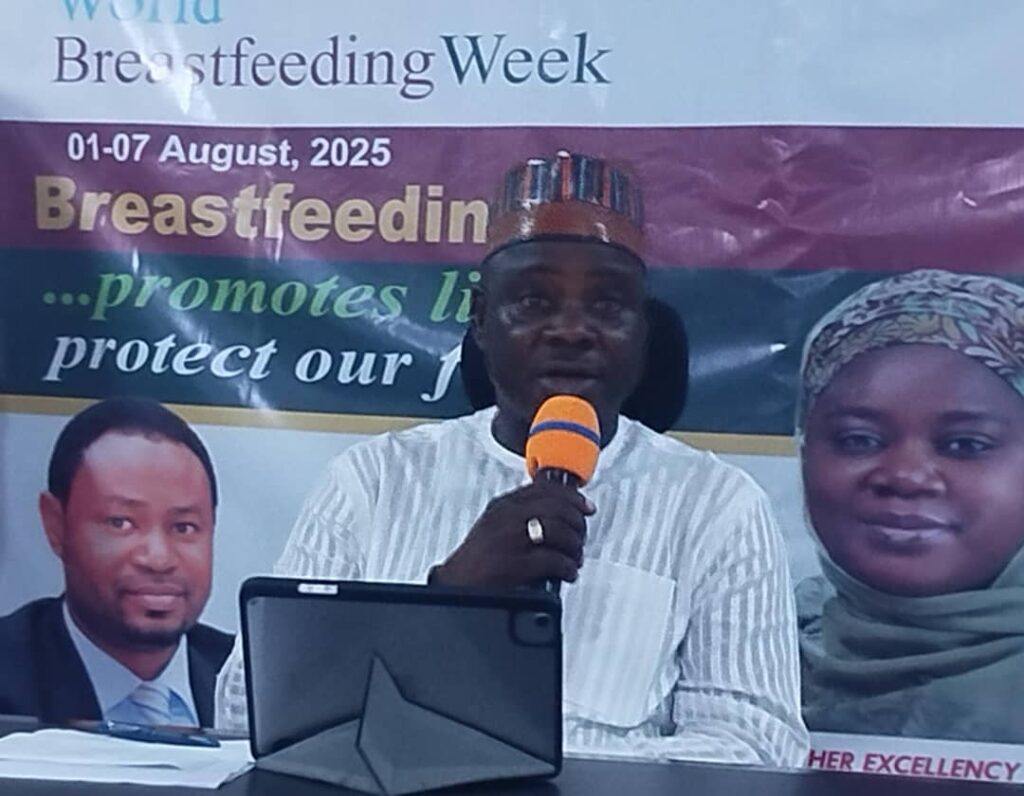The Niger State Government has disclosed ongoing efforts to formalize a one-month paternity leave policy to enable fathers to support their breastfeeding wives.
Commissioner for Primary Health Care, Dr. Ibrahim Dangana, made this known during a press briefing in Minna as part of activities to mark 2025 World Breastfeeding Day. He also revealed that plans are underway to fast-track the approval of six months’ maternity leave for lactating mothers.
Speaking on the theme of 2025 celebration, “Prioritise Breastfeeding: Create a Sustainable Support System,” Dr. Dangana who was represented by the Permanent Secretary of the Ministry, Dr. Mohammed Gana said the initiative aims to raise awareness about the benefits of breastfeeding for infants, young children, women, and communities.
He noted that while the current provision for paternity leave is two weeks, a one-month leave is being considered to allow fathers more time to support their partners and bond with their newborns.
“It is time to recognize breastfeeding as a powerful foundation for lifelong health, development, and equity,” he said.
Dr. Dangana emphasized that the World Health Organization (WHO) recommends exclusive breastfeeding for the first six months of life, followed by continued breastfeeding along with appropriate complementary foods for up to two years and beyond.
He said the proposed paternity leave would be approved and gazetted to ensure institutional support for families and to encourage active involvement of fathers during the early stages of child care.
“All mothers should be supported to initiate breastfeeding as soon as possible after birth—ideally within the first hour—and must receive practical help to establish and maintain breastfeeding, as well as to manage common challenges,” he added.
He also stressed that employment should not be a barrier to effective breastfeeding, calling for systems that allow nursing mothers to remain close to their babies.
Dr. Dangana noted that the state government is promoting best practices for workplace-related breastfeeding support across all 25 local government areas and in both the public and private sectors.
In her remarks, the State Nutrition Officer, Hajia Asmau Muhammad, said the government is committed to supporting women in the workforce by implementing measures that make breastfeeding feasible for all working mothers.
She urged mothers to adopt early and uninterrupted skin-to-skin contact, rooming-in, and kangaroo mother care, practices that significantly improve neonatal survival and reduce complications.















